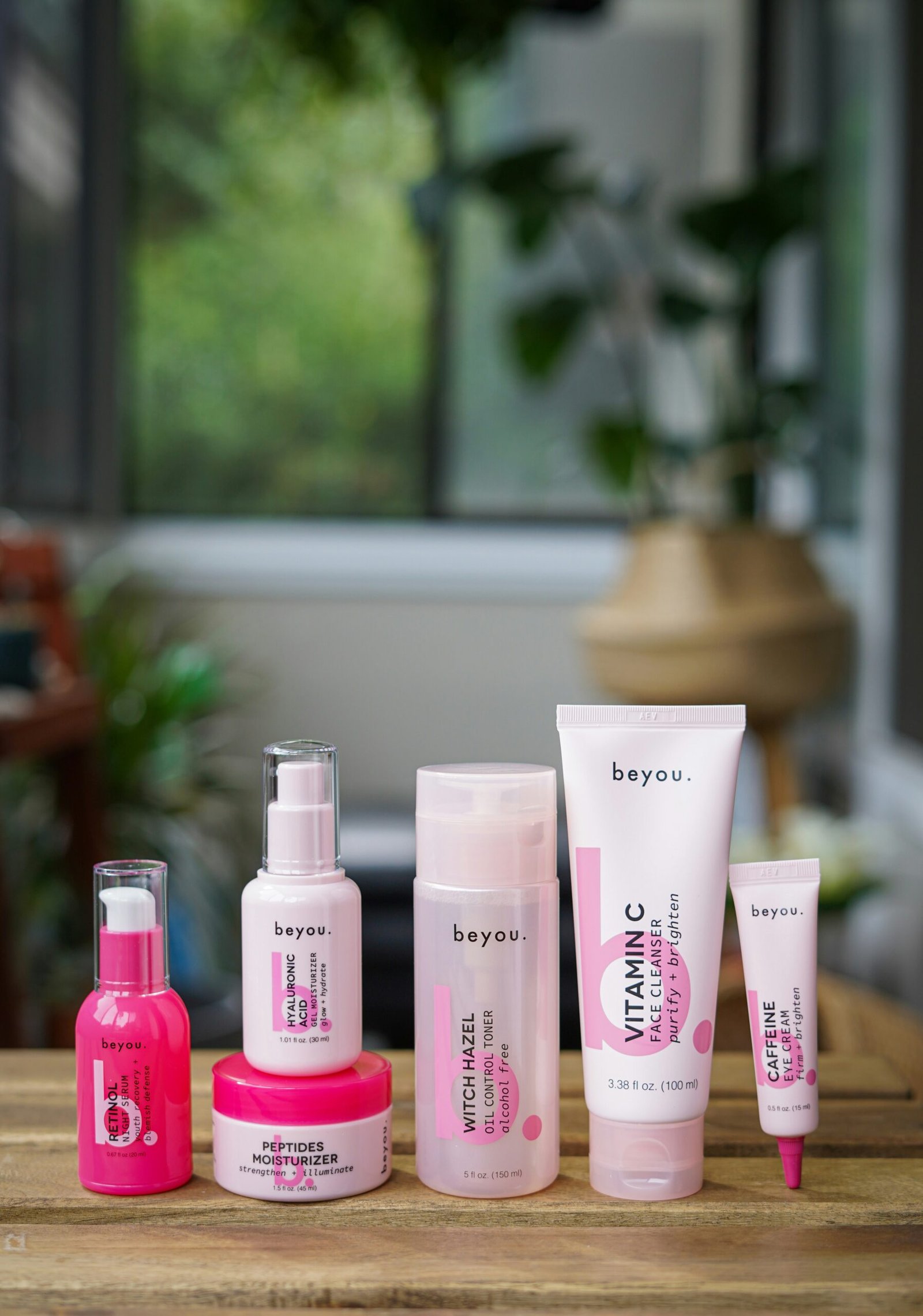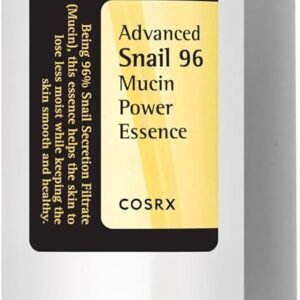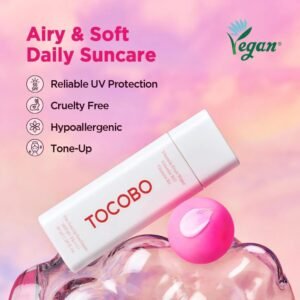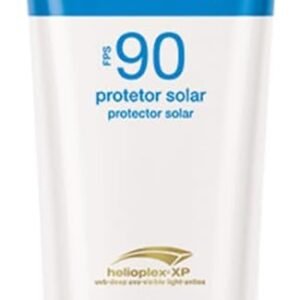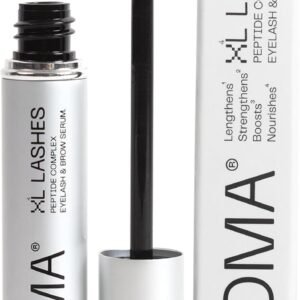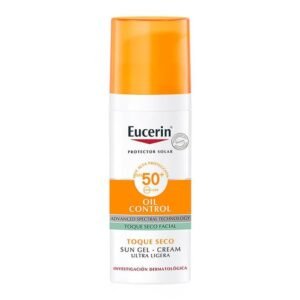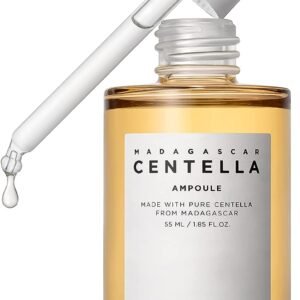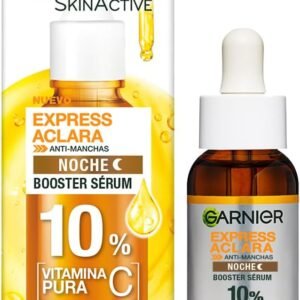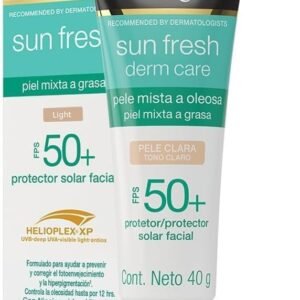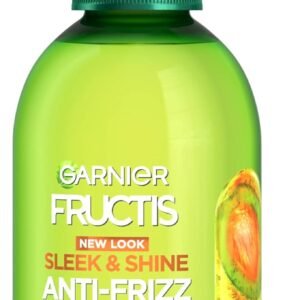Introduction to Retinol
Retinol, a derivative of Vitamin A, stands as one of the most revered ingredients in the realm of skincare. Its origins lie rooted in the broader classification of retinoids, a group of compounds deriving from Vitamin A that are structurally similar yet vary in potency and specific applications.
Vitamin A itself was discovered in the early 20th century for its critical nutritional benefits, but its capacity for skin transformation has pushed retinol into the limelight of cosmetic dermatology. Retinol has been extensively studied and researched for its potential to address various skin concerns, from fine lines and wrinkles to acne and hyperpigmentation.
The history of retinol’s application in dermatology dates back to the 1970s when dermatologists began noticing its profound impact on acne treatment. It was eventually recognized for its anti-aging capabilities and has since been incorporated into a myriad of skincare formulations. Today, retinol is celebrated for its versatility and efficacy, underpinning its revered status in both over-the-counter and prescription skincare products.
As a precursor, retinol requires conversion in the skin to retinoic acid to be effective. This process is gentler on the skin compared to other retinoids, thus making it suitable for a broader range of skin types, including sensitive skin. The growing body of scientific literature and continued endorsements from skincare professionals emphasize its significance in maintaining healthy, youthful skin. Given its fundamental role in skin cell turnover, retinol remains integral to modern skincare, effectively bridging historical use and contemporary advancements.
How Retinol Works
Retinol, a derivative of vitamin A, is renowned for its potent effects on skin health. The transformative journey of retinol begins when it is applied to the skin. As a precursor, retinol must first be converted into retinoic acid through a series of biochemical reactions. This conversion is essential as retinoic acid is the active form that directly interacts with skin cells to bring about its beneficial effects.
The initial step involves retinol being converted into retinaldehyde, followed by its oxidation to form retinoic acid. Once formed, retinoic acid binds to retinoic acid receptors (RARs) present in the skin cells. These RARs play a crucial role as they regulate the expression of genes involved in cell growth and differentiation.
One of the primary actions of retinoic acid is to accelerate cell turnover. This means that it encourages the shedding of old, dead skin cells while promoting the generation of new, healthy ones. This rapid renewal process helps in addressing various skin issues, including fine lines, wrinkles, and hyperpigmentation. Enhanced cell turnover results in a smoother, more even complexion.
Additionally, retinoic acid stimulates fibroblasts to produce more collagen, a vital protein that maintains skin elasticity and firmness. Increased collagen production helps to reduce the appearance of wrinkles and prevent premature skin aging. By fortifying the skin’s structural framework, collagen also enhances its resilience and youthful appearance.
Furthermore, retinoic acid increases the rate of epidermal differentiation and inhibits the activity of enzymes that break down collagen, thereby preserving the integrity of the skin’s extracellular matrix. This comprehensive mechanism underscores the multifaceted benefits of retinol in skincare, making it a staple ingredient for those seeking to improve their skin health.
Understanding these biochemical processes highlights the significance of retinol as a skincare powerhouse, demonstrating its efficacy in promoting a revitalized, younger-looking complexion.
Common Uses of Retinol
Retinol, a derivative of vitamin A, holds a prominent place in the skincare industry due to its extensive range of uses. One of the primary applications of retinol is in treating acne. It works by accelerating cell turnover and preventing the clogging of pores, which are common contributors to acne breakouts. This expedited cell renewal process helps in reducing the formation of acne lesions, thereby promoting clearer skin over time.
Another significant benefit of retinol lies in its ability to mitigate the signs of aging. Retinol is well-regarded for its efficacy in diminishing fine lines and wrinkles. By stimulating collagen production and promoting new cell growth, retinol enhances skin elasticity and firmness. Its anti-aging properties make it a staple ingredient in many skincare products aimed at preserving youthful skin.
Retinol is also effective in improving skin texture. Users often report a smoother, more even skin surface after consistent application. This smoothing effect is attributed to its exfoliating action, which helps in shedding dead skin cells and unveiling fresher, more radiant skin beneath.
Addressing hyperpigmentation is another common use of retinol. This compound works to fade dark spots, age spots, and other forms of pigmentation by inhibiting melanin production. Over time, consistent use of retinol can lead to a more uniform skin tone, reducing the appearance of discoloration and blemishes.
Retinol’s versatility extends to its availability in both over-the-counter products and prescription medications. Over-the-counter formulations typically contain lower concentrations of retinol, making them suitable for beginners or individuals with sensitive skin. Prescription retinoids, on the other hand, offer higher potency and are often recommended for more severe skin concerns under the supervision of a dermatologist.
In summary, retinol’s multifaceted benefits make it an essential component of contemporary skincare routines, catering to a wide range of skin issues from acne and aging to texture refinement and hyperpigmentation. Its availability in various strengths allows for tailored use, providing effective solutions for numerous skin concerns.
Benefits of Retinol
Retinol, a derivative of Vitamin A, has long been revered for its broad spectrum of benefits in skincare. One of the most prominent advantages of retinol is its ability to improve the overall appearance of the skin. With regular use, retinol can significantly reduce the signs of aging such as fine lines and wrinkles, making the skin look smoother and more youthful. This is primarily achieved by accelerating skin cell turnover, which leads to fresher, newer skin emerging on the surface.
The role of retinol in acne reduction is also noteworthy. Clinically proven, retinol helps unclog pores, preventing the formation of new acne and facilitating the healing of existing breakouts. By promoting cell turnover, it exfoliates the skin, reducing the incidence of comedones and inflammatory lesions. Many individuals, including dermatologists, have reported considerable improvement in acne conditions following the consistent application of retinol-based treatments.
Evens skin tone; retinol is highly effective in diminishing hyperpigmentation and dark spots. By boosting cell turnover, it fades discolorations caused by UV damage or post-inflammatory hyperpigmentation. Regular use results in a more uniform and radiant complexion. Additionally, retinol works synergistically with other skin-brightening agents to amplify these effects, providing a comprehensive solution to uneven skin tone.
Moreover, retinol plays a crucial role in stimulating collagen production. Collagen is a structural protein vital for skin firmness and elasticity. With aging, natural collagen levels decline, leading to sagging and loss of skin density. Retinol combats this by penetrating deep into the dermis, where it stimulates fibroblasts to produce more collagen. This results in plumper, firmer skin with a noticeable improvement in texture.
Numerous clinical studies support these benefits. For instance, a research published in the Journal of the American Academy of Dermatology demonstrated that participants using retinol experienced remarkable improvements in skin roughness, fine wrinkles, and overall aging symptoms. Testimonials from users further corroborate these findings, showcasing transformative skincare journeys enhanced by this potent ingredient.
Potential Side Effects and Cons
While retinol is celebrated for its numerous skin benefits, it is equally important to be aware of its potential side effects and disadvantages. The use of retinol can sometimes result in skin irritation, which is common among new users. Symptoms such as redness, dryness, and peeling may occur as the skin adjusts to the new treatment. These issues often diminish over time, but they can be particularly discomforting in the initial stages.
Another concern with retinol use is photosensitivity. Retinol increases skin sensitivity to ultraviolet (UV) radiation, which can lead to a higher risk of sunburn and sun damage. Therefore, it is crucial for users to apply sunscreen daily when using retinol-containing products and to minimize sun exposure as much as possible. The application of retinol at night, as opposed to during the day, is also a recommended practice to mitigate this risk.
For individuals with particularly sensitive skin, beginning with a lower concentration of retinol can help minimize adverse effects. Gradually increasing the concentration allows the skin to adapt, reducing the likelihood of significant irritation. It may take a few weeks for the skin to become accustomed to retinol, so patience and persistence are key during this adjustment period.
However, it is worth noting that retinol may not be suitable for everyone. Individuals with conditions such as rosacea or eczema might find that retinol exacerbates their symptoms. Additionally, those with particularly reactive skin types may discover that even low concentrations of retinol cause irritation. In such cases, consulting with a dermatologist to explore alternative treatments is advised.
In conclusion, while retinol offers substantial skincare benefits, its potential side effects cannot be overlooked. Awareness and proactive management of these side effects can help users enjoy the benefits of retinol with minimal discomfort.
How to Introduce Retinol into Your Skincare Routine
Introducing retinol into your skincare routine requires a methodical approach to avoid irritation and achieve optimal results. Retinol, a derivative of Vitamin A, is known for its remarkable benefits, including reducing fine lines, improving skin texture, and promoting collagen production. However, its potent effects demand careful implementation.
Begin with a low concentration of retinol to allow your skin to acclimatize. Products typically range from 0.01% to 0.1% concentrations. Starting with a lower percentage, such as 0.025%, will minimize the risk of redness, dryness, and peeling. Gradually increase the concentration as your skin builds tolerance. It’s advisable to use retinol products only once or twice a week initially, incrementing frequency based on your skin’s response.
Timing is crucial when applying retinol. Due to its sensitivity to sunlight, it’s best to apply retinol during your nighttime skincare routine. First, cleanse your face to remove any impurities. Follow with a toner, if applicable. Allow your skin to dry completely before applying a pea-sized amount of retinol. This ensures that the product is absorbed effectively and reduces the likelihood of irritation.
When layering retinol with other skincare products, proceed with caution. Retinol should generally be applied before heavier creams or oils. Avoid using retinol on the same night as other potent ingredients like alpha hydroxy acids (AHAs), beta hydroxy acids (BHAs), or vitamin C, as these combinations can be too harsh. Instead, alternate nights for different actives.
Incorporating retinol into your routine makes daily sunscreen application non-negotiable. Retinol can increase your skin’s sensitivity to the sun, exacerbating the risk of sunburn and damage. Opt for broad-spectrum SPF 30 or higher sunscreen every morning, even on cloudy days, to protect your skin and ensure the efficacy of retinol.
By gradually introducing retinol and taking care to layer it correctly with other products, you can enjoy the myriad benefits it offers while minimizing potential side effects.
Retinol Myths vs. Facts
Retinol, a derivative of Vitamin A, has long been celebrated for its profound benefits in skin care. However, its reputation is sometimes muddled by myths and misconceptions. One such pervasive myth is that retinol causes thinning of the skin. In truth, retinol works by accelerating skin cell turnover and supporting collagen production, which promotes a healthier, thicker epidermal layer over time. Rather than causing thinning, consistent and appropriate use can enhance the structural integrity of the skin.
Another widespread misconception is the belief that retinol is unsafe for younger individuals. While retinol is often recommended for those experiencing signs of aging, it can also be beneficial for younger skin, particularly in managing acne and improving overall skin texture. It’s essential to start with lower concentrations to allow the skin to acclimate and then gradually increase as tolerated. Consulting a dermatologist can provide personalized advice tailored to specific skin needs and conditions.
Concerns about the effectiveness of over-the-counter (OTC) retinol products versus prescription-strength formulations also abound. While prescription retinoids are indeed more potent, OTC variants are effective and often come with fewer side effects. The regulated concentrations in OTC products make them a suitable starting point for most people. The effectiveness of retinol, whether OTC or prescription, largely depends on consistent use and proper application.
Additionally, the myth that retinol use should be avoided altogether during sunny months persists. Though retinol can increase photosensitivity, using it in conjunction with a broad-spectrum sunscreen mitigates this risk, allowing for year-round use. Sun protection is pivotal to maximize retinol’s benefits and minimize potential sun damage.
Finally, the fear that retinol will cause irritation and redness is not entirely unfounded but can be managed with a proper introduction protocol. Starting with a small amount and gradually building up frequency helps the skin to tolerate retinol more effectively. Moisturizing adequately can also alleviate initial dryness and flakiness.
Understanding the truths behind these myths empowers individuals to correctly incorporate retinol into their skincare regimen and to enjoy its myriad benefits.
Conclusion and Recommendations
In summarizing the pertinent aspects of retinol, it’s evident that this ingredient has become a cornerstone in contemporary skincare regimens. Retinol is renowned for its myriad benefits, including its ability to stimulate collagen production, ameliorate fine lines and wrinkles, and enhance skin texture. It also plays a crucial role in managing acne and hyperpigmentation, making it a versatile addition to various skincare routines.
For those considering incorporating retinol into their skincare regimen, selecting the appropriate product is paramount. When choosing a retinol product, it is advisable to consider your skin type and specific skincare concerns. Products with lower concentrations of retinol are generally better suited for individuals with sensitive skin or for those new to retinol. Alternatively, higher concentrations can be more effective for advanced skincare needs but should be introduced gradually to mitigate potential irritation.
Maintaining healthy skin while using retinol necessitates a few critical practices. Firstly, it is essential to apply a broad-spectrum sunscreen daily, as retinol can increase skin sensitivity to UV rays. Additionally, incorporating a robust moisturizer can help combat the dryness that sometimes accompanies retinol use. Equally important is adhering to a consistent skincare routine, allowing your skin to acclimate to retinol over time.
Lastly, professional consultation should not be overlooked. Consulting a dermatologist can provide personalized guidance tailored to your unique skin needs and issues, ensuring optimal benefits are achieved with minimal risk. Dermatologists can recommend specific products, tailor usage instructions, and offer insights into integrating retinol with other skincare treatments.
In conclusion, the efficacy and importance of retinol in skincare are well-founded. With careful selection, gradual introduction, and mindful practices, retinol can become a vital component of a skincare routine, yielding substantial improvements in skin health and appearance.
